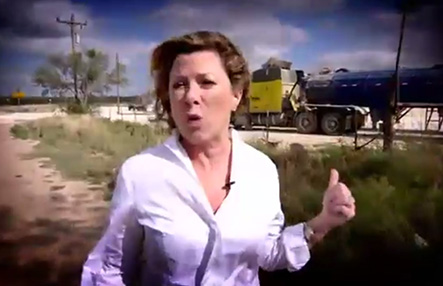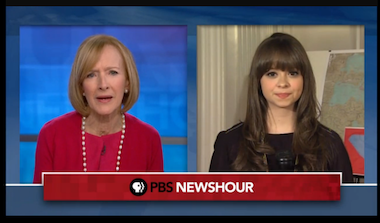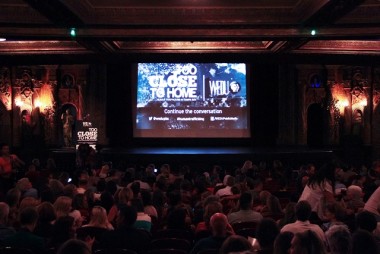Tag: Journalism
Al Jazeera America: A news model pubTV should look to emulate
Most nationally distributed public TV series are docile and dull. The system could learn much from the bold, daring AJAM.Expanded news team strengthens West Virginia Public Broadcasting response to toxic spill
The network's multiplatform coverage of the crisis led to national media appearances for reporter Ashton Marra.Omidyar and Greenwald’s new journalism venture will be incorporated nonprofit
First Look Media, a new journalism organization backed by eBay founder Pierre Omidyar and headed by former Guardian columnist Glenn Greenwald, will include a 501(c)3 ...CPB grants $1.4M to new Local Journalism Center focusing on energy
CPB will award $1.4 million to seven public radio and TV stations for the creation of a new Local Journalism Center covering ...Grants, donations to NPR support expanded reporting, app for personalized listening
NPR has lined up $17 million in grants and individual gifts to expand two beat-reporting units and to complete development of an ...OPB meets funding goal for new Southwest Washington bureau
12/16/13: This item has been updated. Oregon Public Broadcasting is preparing to open a permanent bureau in Southwest Washington state by early 2014, and ...Diversified revenues are key to sustainability, Knight study finds
Nonprofit news organizations have made significant progress in developing healthy and sustainable revenue streams, according to a recent study by the Knight ...CPB to support more collaborative journalism projects
CPB will devote $2.5 million to reporting projects spearheaded by stations and national producers, President Patricia Harrison announced Nov. 12 at the ...WNYC’s homemade sensors provide new tools for detecting stories
WNYC is among the media outlets that are working to extend that domain to include members of their audiences, tapping into communities ...Focus on anti-terrorism becomes ‘life-changing’ story for filmmaker Poitras
After plumbing the global repercussions of America’s war against terrorism, documentary filmmaker Laura Poitras helped expose how that war has stripped away ...Ray Suarez resigning from PBS NewsHour
This item has been updated and reposted with additional information. Ray Suarez, chief national correspondent for PBS NewsHour, is resigning after 14 years with ...WEDU debuts doc on troubling local issue that few see in their midst: human trafficking
WEDU's Too Close to Home, which was previewed to a packed theatre before its Sept. 26 broadcast debut, reports personal stories behind a troubling ...WLRN backpedals after host dumps talk show guest
The author of a book arguing for the innocence of five convicted Cuban spies found himself disinvited from an appearance on Miami’s ...Quest project hones focus on sustainability, hunts for new partner stations
Quest, KQED’s multimedia science journalism and education project, is seeking more public media reporting partners.Investigative unit covering New England moves into WGBH’s local newsroom
Boston’s WGBH is bolstering its investigative reporting capacity through a new partnership with the nonprofit New England Center for Investigative Reporting.









